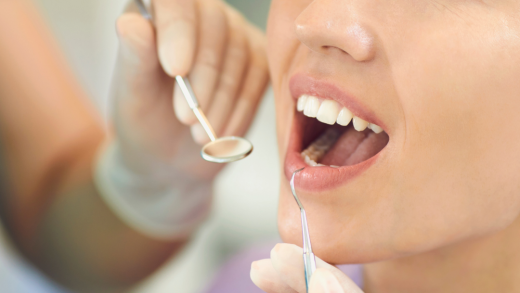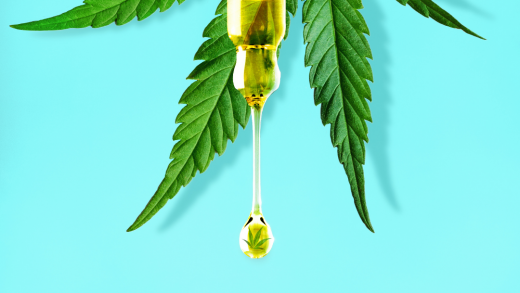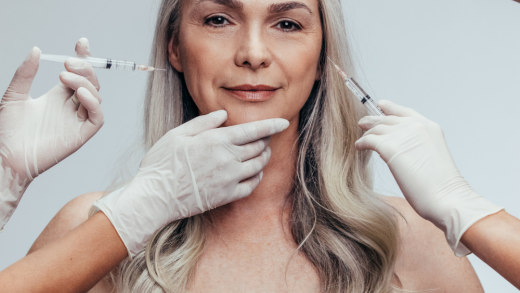Incorporating effective skincare habits into a daily routine can significantly enhance a person’s overall health and well-being. Healthy skin not only reflects external beauty but also indicates internal wellness, serving as a protective barrier against environmental stressors. By prioritising skincare, individuals take proactive steps towards a lifestyle that promotes both physical and mental health.
Adopting consistent skincare practices can lead to notable improvements in skin health, boosting confidence and self-esteem. Hydration, sun protection, and the use of suitable products tailored to one’s skin type create a solid foundation for maintaining vibrant skin. This foundation contributes to a routine that encourages mindfulness and care in daily life.
Furthermore, integrating skincare into a broader health regimen can establish a sense of discipline and self-care. Simple acts like a morning cleanse or an evening moisturiser provide not only physical benefits but also mental clarity, allowing individuals to embrace a healthier lifestyle holistically.
Fundamental Skincare Habits for a Healthy Lifestyle
Maintaining healthy skin requires attention to several core practices that promote effectiveness and efficacy. Proper routines and an understanding of individual skin types are essential for achieving the best results.
Establishing an Effective Skincare Routine
An effective skincare routine should be tailored to an individual’s skin type and concerns. It typically involves a consistent regimen of cleansing, moisturising, and protection.
Morning routines may include:
- Gentle Cleanser: To remove impurities accumulated overnight.
- Serum: With beneficial ingredients such as hyaluronic acid for hydration.
- Moisturiser: To lock in moisture and maintain skin barrier health.
- Sunscreen: To shield against UV damage.
Evening routines should also focus on cleansing and repairing, often incorporating targeted treatments for specific issues like acne or anti-ageing. Consistency is critical; adhering to such a routine fosters long-term skin health.
Cleansing and Skin Type Awareness
Cleansing is vital for effective skincare. It removes dirt, oil, and pollutants that can lead to skin issues. Awareness of skin type is paramount when selecting a cleanser.
- Oily Skin: Gel or foaming cleansers help control excess oil.
- Dry Skin: Creamy cleansers provide hydration while cleansing.
- Combination Skin: A balanced cleanser that addresses both oily and dry areas.
Cleansing should occur twice daily to maintain clarity and texture. After cleansing, applying a suitable toning product can help balance skin ph and prep it for moisture application, enhancing overall skin quality.
Consistent Moisturising for Healthy Skin
Moisturising is crucial for achieving and maintaining healthy skin. A suitable moisturiser helps support the skin barrier, preventing water loss and providing essential hydration.
Individuals should choose moisturisers based on skin type:
- Oily Skin: Lightweight, non-comedogenic formulas.
- Dry Skin: Rich, creamy products with added oils or butters.
- Sensitive Skin: Fragrance-free and soothing ingredients are vital.
Additionally, incorporating serums that contain ingredients like hyaluronic acid can enhance hydration. Applying moisturiser regularly, both morning and night, ensures that the skin remains plump and resilient, thereby promoting a vibrant appearance.
Sun Protection and Preventing Skin Ageing
Effective sun protection is crucial for maintaining youthful skin and preventing premature ageing. This section explores the significance of daily sunscreen application, details on SPF ratings, and strategies to minimise skin damage from UV exposure.
Importance of Daily Sunscreen Application
Daily sunscreen application acts as a barrier against harmful ultraviolet (UV) rays. It is essential for preventing skin damage and minimising the risk of skin ageing. The sun emits both UVA and UVB rays, both of which contribute to skin issues.
UVA rays penetrate deeper, leading to collagen breakdown and promoting wrinkles and fine lines. UVB rays primarily cause sunburn and can result in skin cancer. Applying sunscreen daily, even on cloudy days, helps protect the skin’s integrity. Regular use can noticeably improve skin texture over time.
Understanding SPF and Broad-Spectrum Sunscreen
SPF, or Sun Protection Factor, measures how well a sunscreen protects against UVB rays. A higher SPF offers increased protection, but no sunscreen provides complete blockage. A broad-spectrum sunscreen protects against both UVA and UVB rays, making it a critical choice for comprehensive skin protection.
For daily use, it is advisable to choose an SPF of at least 30. Applying enough product—about a shot glass full for the body—ensures adequate coverage. Reapplication every two hours, or after swimming or sweating, maintains protection levels and is essential for effective sun safety practices.
Minimising Skin Damage from UV Exposure
To further reduce skin damage from UV exposure, some effective strategies can be adopted. First, seeking shade during peak sun hours—typically between 10 a.m. and 4 p.m.—can significantly lower UV exposure.
Wearing protective clothing, including long-sleeved shirts and wide-brimmed hats, enhances protection. Sunglasses with UV protection safeguard the delicate skin around the eyes. Additionally, incorporating antioxidants into skincare routines may help combat free radicals generated by sun exposure, further promoting skin health.
Nutritional and Lifestyle Factors Supporting Skin Health
Proper nutrition and lifestyle choices significantly influence skin health. A balanced diet rich in essential nutrients, along with adequate hydration, exercise, and healthy habits, can enhance skin appearance and maintain its vitality.
Balanced Diet and Key Nutrients
A balanced diet is fundamental for skin health. Incorporating a variety of fruits and vegetables ensures a rich supply of vitamins and antioxidants. Key nutrients that support skin include:
- Vitamin C: Promotes collagen production, enhancing skin elasticity.
- Vitamin E: Acts as a powerful antioxidant, protecting skin from damage.
- Omega-3 fatty acids: Found in fish, these help maintain the skin’s lipid barrier for hydration.
Whole grains provide vital energy and fibre, while lean proteins support the growth and repair of skin tissues. Zinc, present in nuts and seeds, plays a crucial role in wound healing and preventing acne.
Hydration and Its Impact on Skin
Hydration is essential for maintaining the skin’s moisture balance. Water helps flush out toxins, contributing to a clearer complexion. Dehydration can lead to dryness, which makes skin appear dull and accentuates fine lines.
To boost hydration, it is advisable to consume water-rich foods, such as cucumbers and oranges, alongside daily water intake. A general recommendation is to drink at least eight glasses of water daily, although needs may vary based on activity levels and climate.
The Role of Regular Exercise and Physical Wellness
Regular exercise promotes circulating blood flow, delivering oxygen and nutrients to skin cells. This increased circulation enhances the skin’s appearance, contributing to a healthy glow. Exercise also reduces stress, which can affect skin negatively through conditions like acne or eczema.
Incorporating a mix of cardiovascular activities and strength training strengthens the body, including the skin. Activities like yoga can improve flexibility and relaxation, further benefiting skin health.
The Effects of Smoking and Alcohol on Skin
Smoking has detrimental effects on skin health, causing premature ageing and a sallow complexion. The toxins in cigarette smoke reduce blood flow, depriving skin of necessary nutrients.
Alcohol consumption can lead to dehydration and dilate blood vessels, resulting in a flushed appearance. It also hampers the absorption of vital nutrients necessary for skin health. Reducing or eliminating these substances can result in more radiant, youthful skin.
Advanced Skincare Practices and Holistic Wellbeing
Advanced skincare practices play a critical role in maintaining healthy skin while promoting holistic wellbeing. Combining effective techniques with a focus on mental and emotional health can lead to improved skin conditions and overall wellness.
Exfoliation and Cell Turnover
Exfoliation helps remove dead skin cells, allowing fresh, healthy cells to surface. This process can enhance the skin’s texture and clarity. Regular exfoliation boosts cell turnover, which is essential for maintaining youthful skin and reducing the appearance of acne.
Chemical exfoliants, such as alpha-hydroxy acids (AHAs) and beta-hydroxy acids (BHAs), effectively dissolve dead skin cells. For those concerned with anti-ageing, retinoids can also improve cell turnover and stimulate collagen production.
Over-exfoliation can lead to irritation and inflammation, so it is recommended to exfoliate 1-3 times a week based on skin type. Tailoring the method to individual needs helps foster a healthy balance.
Incorporating Targeted Treatments
Targeted treatments address specific skin concerns, such as hyperpigmentation, fine lines, or acne. Vitamin C serums are effective for brightening and protecting against free radicals. Retinol, a powerful derivative of Vitamin A, is well-known for its anti-ageing properties.
When using retinol, starting with a lower concentration is advisable to gauge tolerance. Gradually increasing usage can enhance its effectiveness. Furthermore, incorporating moisturisers rich in peptides can support skin structure and firmness.
Consistency in applying these treatments is key. Establishing a daily routine that includes these products can yield significant improvements over time.
Stress Management and Skin Health
Stress has a profound impact on skin health, often exacerbating conditions like acne and eczema. Practices such as yoga and meditation can reduce stress levels effectively. These activities promote relaxation and enhance overall mental health.
Incorporating mindfulness techniques can improve skin appearance by lowering cortisol levels, which can lead to diminished inflammation. Engaging in regular physical activity also aids in boosting circulation, contributing to a more radiant complexion.
Creating a balanced lifestyle that prioritises stress management supports not only mental wellbeing but also promotes healthier skin.
Expert Advice and Dermatological Support
Consulting with a dermatologist is essential for tailored skincare regimens. They provide insights on effective ingredients and treatments that address individual concerns. Regular check-ups can help monitor skin health and adapt routines as needed.
A dermatologist can also assist in managing acne and other skin conditions through prescription treatments that might be more effective than over-the-counter options. Their expertise can guide individuals in making informed choices.
Incorporating professional advice ensures that skincare practices are evidence-based and beneficial.





